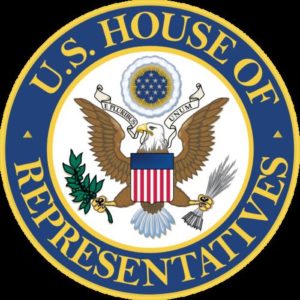By Jim Ellis — Wednesday, Feb. 1, 2023
President
South Carolina: Sen. Scott, Ex-Gov. Haley Badly Trail Trump, DeSantis — Presidential state polls are beginning to surface, and a recently released Moore Information South Carolina survey (Jan. 18-24; 450 likely South Carolina Republican primary voters; live interview) finds former President Donald Trump leading the GOP field in one of the top early primary states while Florida Gov. Ron DeSantis follows. The surprise result is that both South Carolina Sen. Tim Scott and the Palmetto State’s former governor and ex-UN ambassador, Nikki Haley, each of whom appears to be testing the waters for their own presidential run, fare poorly on the ballot test question.According to the numbers, Trump holds a 41-31-12-5-4 percent advantage over DeSantis, Haley, Scott, and former Vice President Mike Pence, respectively. While the two South Carolinians don’t score well on the ballot test, their favorability ratings among the Republican faithful are on par with the two leading candidates. Trump has a positive rating of 83 percent, Gov. DeSantis is at 82 percent, while Haley and Sen. Scott score 79 and 78 percent, respectively. Pence is also viewed positively with a 70 percent favorable rating.
Senate
Michigan: Rep. Haley Stevens (D) Declines Senate Bid — Three-term US Rep. Haley Stevens (D-Birmingham) who defeated then-Rep. Andy Levin in a redistricting forced Democratic primary pairing last August, said Monday that she would not pursue a race for Sen. Debbie Stabenow’s (D) open seat next year. Rep. Stevens believes she “can best serve Michigan’s working families, manufacturers, students, and small businesses in my current role.”
It had been expected that Rep. Elissa Slotkin (D-Lansing) was preparing an official announcement to enter the Senate race, but has yet to move forward. Despite a flurry of early activity among Democrats examining the open race, no one has yet formally declared their intention to become a Senate candidate.
House
AZ-3: Dems Positioning for Open Race — Arizona state Senate Minority Leader Raquel Teran (D-Phoenix), also a former Arizona Democratic Party chair, confirms that she is considering entering the open primary to succeed Rep. Ruben Gallego (D-Phoenix), who is now officially running for the Senate. With the downtown Phoenix 3rd District voting overwhelmingly Democratic — the FiveThirtyEight data organization rates the seat D+44 — the August 2024 party primary will determine the next representative. A crowded field featuring a number of local and state elected officials is expected to form.
CA-30: Field Now Grows to Eight — Rep. Adam Schiff (D-Burbank) running for the Senate has already led to a field of six viable 2024 candidates with two more announcements coming over the weekend. Both state Sen. Anthony Portatino (D-La Canada) and former Los Angeles City Attorney Mike Feuer (D) announced that they will run for the congressional seat next year.
Already in the field are state Assemblywoman Laura Friedman (D-Glendale), Los Angeles Unified School District board member Nick Melvoin, actor Ben Savage, and businessman John Bocanegra (D). The California jungle primary is scheduled for Super Tuesday, March 5, 2024. It is likely that two Democrats will advance into the general election from this D+45 rated CD.
IN-3: Former Congressman May Return — Former Republican US congressman and ex-Indiana state legislator Marlin Stutzman confirms that he is considering running for his previous position since Rep. Jim Banks (R-Columbia City) has declared for the Senate. At this point, the only formidable announced candidate in what will be an open safe Republican congressional seat anchored in the Ft. Wayne area is state Sen. Andy Zay (R-Huntington). Rep. Banks’ successor will come from the May 2024 Republican primary.







